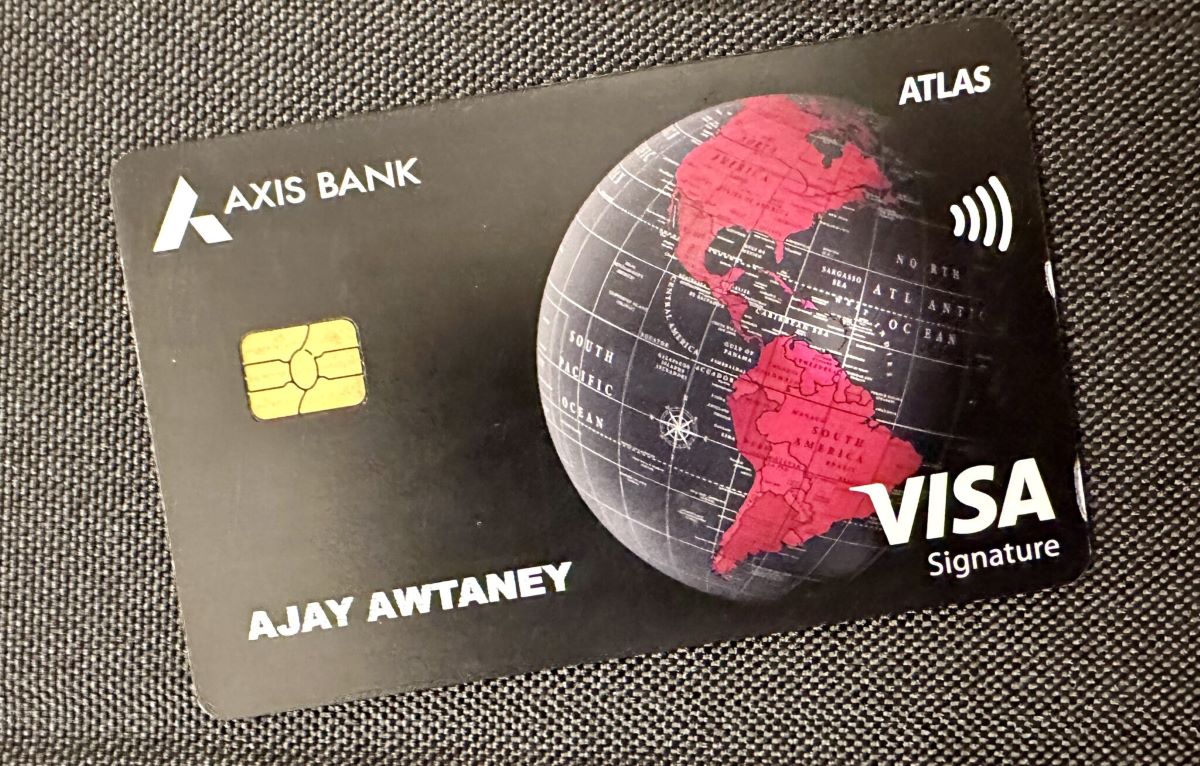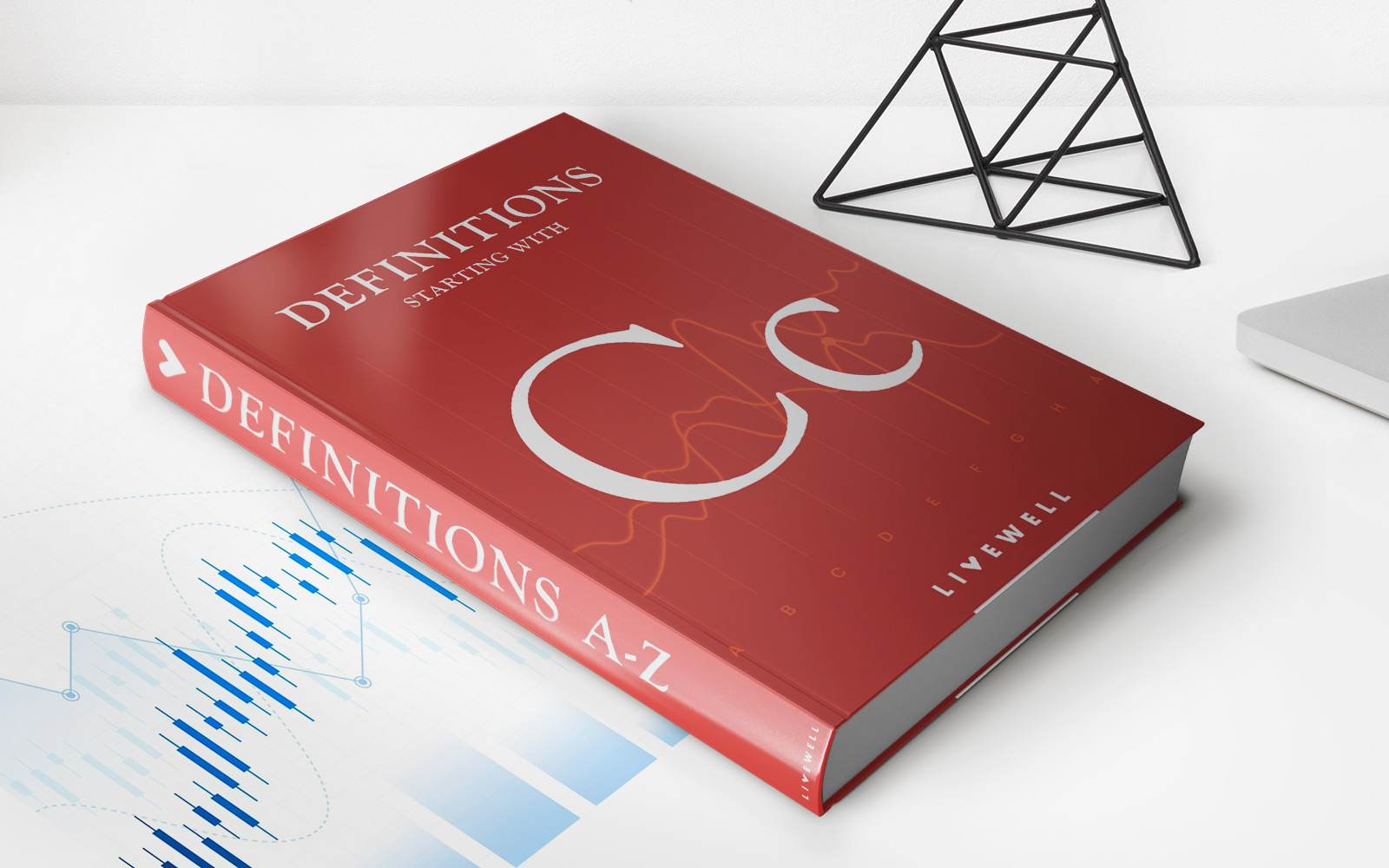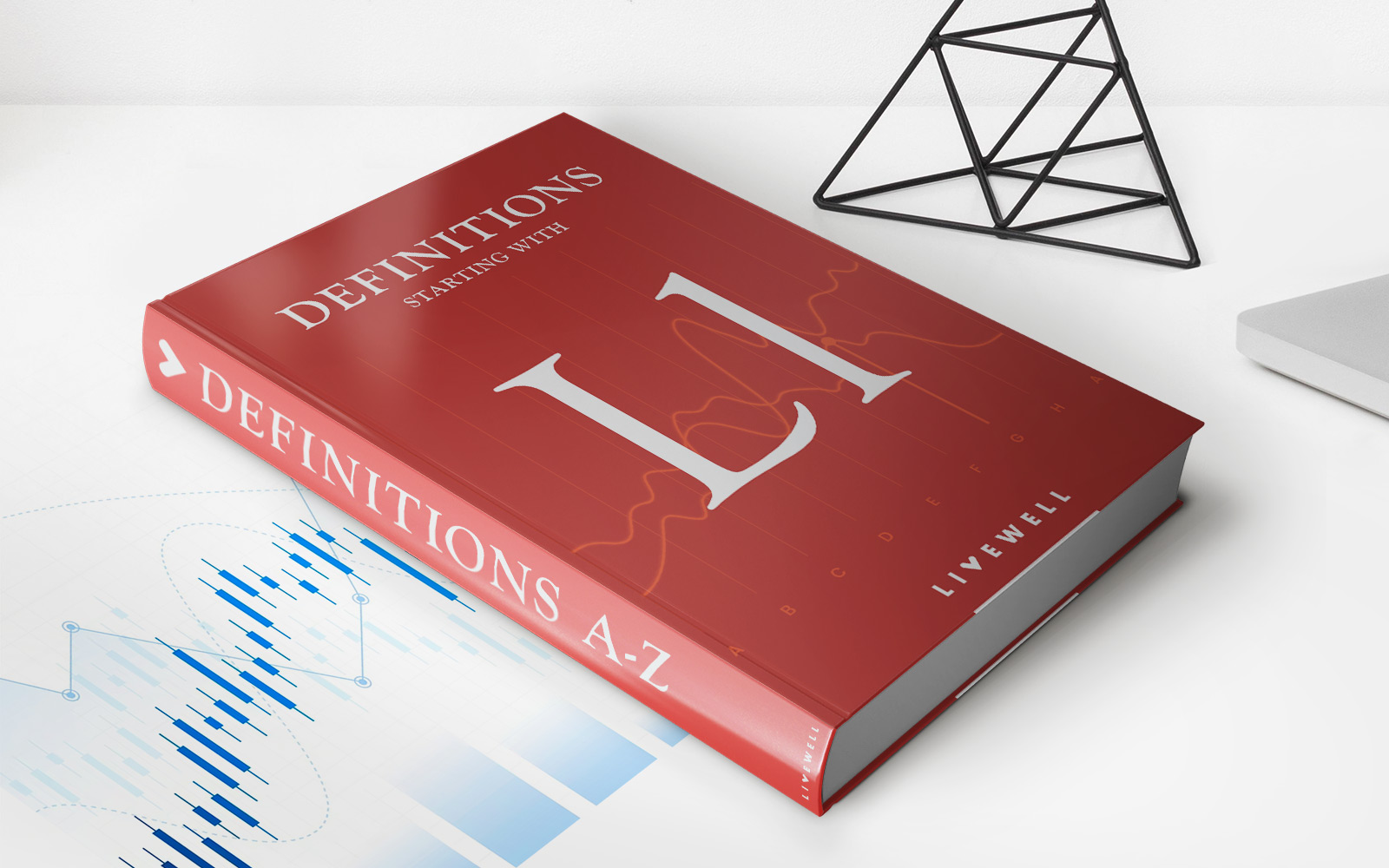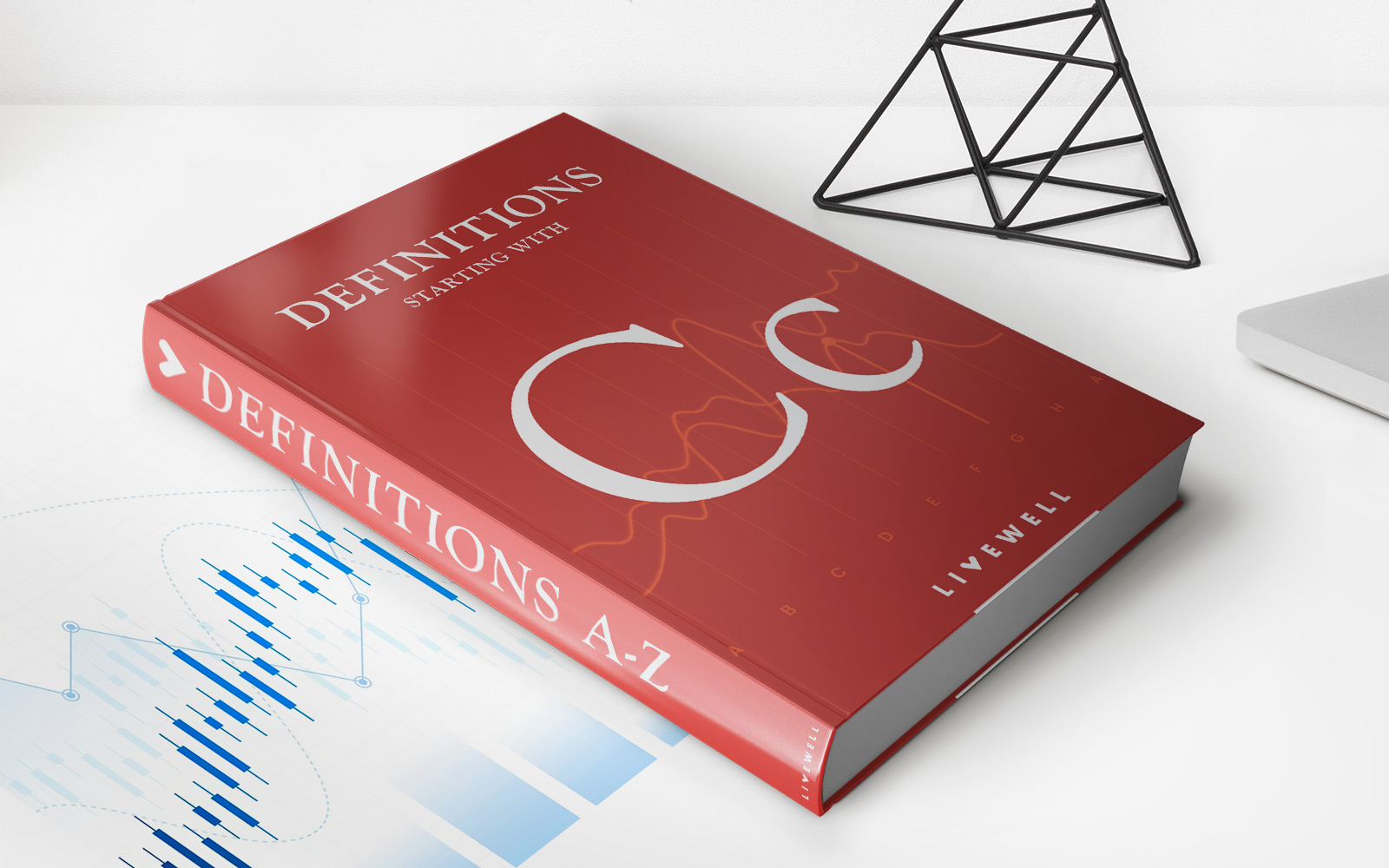

Finance
What To Know When Getting A Credit Card
Published: November 6, 2023
Looking for a credit card? Get all the essential information you need to know about credit cards and finance before applying. Make informed decisions and manage your finances wisely.
(Many of the links in this article redirect to a specific reviewed product. Your purchase of these products through affiliate links helps to generate commission for LiveWell, at no extra cost. Learn more)
Table of Contents
Introduction
A credit card can be a valuable financial tool when used responsibly. Whether you’re a seasoned user or considering getting your first credit card, it’s important to have a solid understanding of how they work and how to make the most of the benefits they offer. In this article, we will explore the ins and outs of credit cards, from the different types available to how to choose the right one for your needs.
At its core, a credit card is a payment card that allows you to borrow money from a financial institution to make purchases. Unlike a debit card, which withdraws funds directly from your bank account, a credit card provides you with a line of credit that you can use to make purchases and repay later. This feature can be particularly useful for managing cash flow and making large purchases without having to immediately pay for them in full.
One of the key advantages of using a credit card is the ability to build credit history. Responsible and timely credit card usage can help establish a positive credit record, which in turn can be beneficial when applying for loans or mortgages in the future. Additionally, most credit cards come with built-in fraud protection features, making them a safer option compared to carrying cash or using a debit card.
That being said, it’s crucial to use credit cards wisely and avoid falling into debt. High interest rates and fees can quickly accumulate if you carry a balance from month to month, leading to financial stress and potential damage to your credit score. Therefore, it’s essential to have a clear understanding of credit card terms, fees, and repayment options.
In the following sections, we will delve into the different types of credit cards, how to select the right one for your needs, and best practices for managing your credit card effectively. Understanding these aspects will empower you to make informed financial decisions and make the most of the benefits that credit cards can offer.
Understanding Credit Cards
Before diving into the details of different types of credit cards and how to choose the right one, it’s essential to have a clear understanding of how credit cards work.
As mentioned earlier, a credit card is a form of payment card that allows you to make purchases on credit. When you use a credit card to make a purchase, the issuing financial institution pays the merchant on your behalf, and you agree to repay the amount borrowed within a specified period, typically monthly. If you pay off the entire balance within the grace period, usually around 25-30 days, you won’t have to pay any interest. However, if you carry a balance, interest charges will be applied to the outstanding amount.
Credit cards come with a predetermined credit limit, which is the maximum amount you can borrow. This limit depends on various factors, including your credit score, income, and credit history. It’s important to note that exceeding your credit limit can result in penalty fees and potentially harm your credit score.
In addition to the credit limit, credit cards often offer additional features and benefits. These can include cash back rewards, travel rewards, fraud protection, extended warranty on purchases, and access to exclusive offers or perks. Understanding these features can help you choose a credit card that aligns with your lifestyle and financial goals.
It’s important to remember that using a credit card responsibly requires discipline and responsible financial management. It’s advisable to only charge what you can afford to repay in full each month to avoid accumulating high-interest debt. Regularly monitoring your credit card statements, keeping track of your spending, and setting a budget will help you stay on top of your finances and prevent any surprises.
Furthermore, it’s crucial to be aware of the terms and conditions associated with your credit card. This includes interest rates, annual fees, penalty fees, and any promotional offers. familiarize yourself with these details will help you make informed decisions and avoid unnecessary expenses.
Now that we have a solid understanding of credit cards, let’s explore the different types available and how to choose the right one for your needs.
Types of Credit Cards
Credit cards come in various types, each designed to cater to different needs and preferences. Understanding the different types can help you choose the one that aligns with your financial goals and lifestyle. Here are some common types of credit cards:
- Standard/Basic Credit Cards: These are the most common type of credit cards. They offer a line of credit with a set credit limit and can be used for everyday purchases.
- Rewards Credit Cards: Rewards credit cards allow you to earn rewards or points for every dollar spent. These points can be redeemed for various rewards, such as cash back, travel rewards, merchandise, or gift cards. Rewards credit cards can be further categorized into cash back, travel, or general rewards cards.
- Airline and Travel Credit Cards: These credit cards are designed for frequent travelers. They often offer travel-related benefits and perks, such as airline miles, airport lounge access, travel insurance, and waived foreign transaction fees.
- Secured Credit Cards: Secured credit cards require a security deposit as collateral. They are typically offered to individuals with limited or poor credit history. The credit limit is typically equal to the deposit made, and responsible usage can help improve credit scores.
- Student Credit Cards: Student credit cards are specifically designed for students with limited or no credit history. They often come with lower credit limits and educational resources to help students build credit responsibly.
- Business Credit Cards: Business credit cards are tailored for small business owners. They offer features such as expense tracking, employee cards, and rewards programs catered to business expenses.
- Balance Transfer Credit Cards: Balance transfer credit cards allow you to transfer existing credit card balances to a new card with a lower interest rate or promotional APR. This can help consolidate debt and save on interest charges.
It’s important to evaluate your spending habits, goals, and financial situation when choosing a credit card. Consider factors such as rewards, interest rates, fees, and any additional benefits that align with your lifestyle and financial needs.
Remember, no single credit card is perfect for everyone. Taking the time to research and compare different options will enable you to find the credit card that best suits your individual circumstances. Now that we understand the different types of credit cards, let’s move on to understanding how you can choose the right one for you.
How to Choose the Right Credit Card
With a wide array of credit cards available in the market, finding the right one can seem overwhelming. However, by considering a few key factors, you can narrow down your options and select a credit card that best aligns with your needs. Here are some tips to help you choose the right credit card:
- Identify Your Spending Habits: Assess your spending patterns and identify where you spend the most. If you frequently travel, a travel rewards credit card may be beneficial. If you primarily use your credit card for everyday purchases, a cash back or rewards credit card that offers incentives for your regular spending may be a good fit.
- Consider the Fees: Pay attention to the fees associated with a credit card. This can include annual fees, foreign transaction fees, balance transfer fees, and late payment fees. Ensure that the fees are reasonable and justifiable based on the benefits and rewards the credit card offers.
- Review the Interest Rates: Interest rates can significantly impact the cost of borrowing on a credit card. If you intend to carry a balance, prioritize low-interest credit cards. However, if you plan to pay your balance in full each month, the interest rate may be less of a concern.
- Check the Rewards and Benefits: Evaluate the rewards program and benefits offered by the credit card. Consider the type of rewards available, redemption options, and how well they align with your preferences and lifestyle. Some credit cards also offer additional perks such as travel insurance, extended warranties, or access to exclusive events.
- Review the Credit Card Issuer: Research the reputation and customer service of the credit card issuer. Look for reviews and ratings to ensure that they have a track record of providing good customer support and resolving issues promptly.
- Consider Your Credit History: Depending on your credit history, some credit cards may be easier to qualify for than others. If you have a limited or poor credit history, consider secured credit cards or credit cards specifically designed for individuals with lower credit scores.
- Read the Terms and Conditions: Carefully review the terms and conditions of the credit card, including the fine print. Pay attention to grace periods, late payment policies, and any promotional offers. Understanding the terms will prevent any surprises and help you make informed decisions.
Keep in mind that it’s possible to have multiple credit cards to cater to different needs. However, managing multiple cards requires careful budgeting and responsible credit card usage. Start with one or two cards that best meet your requirements, and only apply for additional cards when necessary.
By considering these factors and conducting thorough research, you can choose a credit card that not only offers attractive rewards and benefits but also fits well within your financial situation and goals. Once you’ve selected the right credit card, it’s important to understand the fees and charges associated with it, which we’ll explore in the next section.
Credit Card Fees and Charges
When using a credit card, it’s crucial to be aware of the various fees and charges that can impact your overall cost of borrowing. Understanding these fees will help you manage your credit card effectively and avoid any unnecessary expenses. Here are some common fees and charges associated with credit cards:
- Annual Fee: Some credit cards charge an annual fee for card membership. This fee can vary depending on the type of credit card and the benefits it offers. Consider whether the rewards and benefits outweigh the cost of the annual fee before choosing a credit card with this fee.
- Interest Charges: If you carry a balance on your credit card by not paying off the full amount owed each month, you will be charged interest. The interest rate, commonly referred to as the Annual Percentage Rate (APR), can vary depending on the credit card and individual creditworthiness. It’s important to understand the interest rate and how it can impact the cost of borrowing.
- Late Payment Fees: If you fail to make at least the minimum payment by the due date, you will be charged a late payment fee. Late payment fees can add up quickly and impact your overall credit card cost. To avoid these fees, always make payments on time or set up automatic payments to ensure prompt payment.
- Foreign Transaction Fees: If you use your credit card for purchases made in a foreign currency or outside of your home country, you may be subject to foreign transaction fees. These fees are typically a percentage of the transaction amount and can add up, especially if you frequently travel internationally.
- Balance Transfer Fees: When transferring balances from one credit card to another, balance transfer fees may apply. These fees are typically a percentage of the balance being transferred and can affect the potential savings from consolidating debt onto a low- or zero-interest introductory rate card.
- Cash Advance Fees: If you use your credit card to withdraw cash from an ATM, you may be charged a cash advance fee. Cash advances typically come with higher interest rates than regular purchases and should be used sparingly, if at all.
- Overlimit Fees: Exceeding your credit limit can result in overlimit fees. It’s important to monitor your spending and stay within your credit limit to avoid these fees and potential penalties.
- Returned Payment Fees: If a payment made on your credit card is returned due to insufficient funds or other reasons, you may be charged a returned payment fee. Ensure that you have sufficient funds in your bank account when making credit card payments to avoid these fees.
Before applying for a credit card, review the terms and conditions to understand the fees and charges associated with it. Remember, responsible credit card management, such as paying off your balance in full each month and making payments on time, can help you avoid many of these fees.
In the next section, we’ll delve into the rewards and benefits that credit cards offer, which can be an enticing feature for many cardholders.
Credit Card Rewards and Benefits
Credit card rewards and benefits are one of the key reasons why many people choose to use credit cards for their purchases. These incentives can range from cash back on everyday spending to travel rewards and exclusive perks. Understanding the rewards and benefits offered by different credit cards can help you maximize your card usage. Here are some common credit card rewards and benefits to consider:
- Cash Back: Cash back rewards are one of the most popular credit card incentives. With cash back cards, you can earn a percentage of your purchases back in the form of cash. The cash back can be applied as a statement credit, deposited into your bank account, or used towards future purchases.
- Travel Rewards: Travel rewards credit cards allow you to earn points or miles for your spending, which can be redeemed for flights, hotel stays, car rentals, or other travel-related expenses. These cards often offer additional travel benefits such as airport lounge access, travel insurance, and concierge services.
- Points Rewards: Points rewards credit cards allow you to earn points for every dollar spent, which can be redeemed for a variety of rewards such as merchandise, gift cards, or experiences. Some credit cards offer bonus points for specific categories, such as dining, groceries, or gas purchases.
- Introductory Offers: Many credit cards come with introductory offers, such as 0% APR on purchases or balance transfers for a certain period. These offers can help you save on interest charges or consolidate debt onto a single card. Be sure to understand the terms and conditions of these offers, including the duration and any associated fees.
- Retail Shopping Perks: Some credit cards offer special discounts, exclusive access to sales events, or extended warranty protection on purchases made with the card. These benefits can be particularly valuable if you frequently shop at specific retailers or make large purchases.
- Concierge Services: Premium or high-end credit cards often provide concierge services that can assist with travel arrangements, restaurant reservations, event tickets, and more. This personalized assistance can add convenience and enhance your overall experience as a cardholder.
- Fraud Protection: Many credit cards offer robust fraud protection features. These can include real-time alerts for suspicious transactions, zero liability for fraudulent charges, and dedicated customer support to resolve any issues related to unauthorized transactions.
- Additional Benefits: Depending on the credit card, you may also be eligible for other unique benefits such as complimentary airport lounge access, travel accident insurance, purchase protection, or roadside assistance. Review the specific benefits offered by each card to determine which ones align with your needs.
When choosing a credit card based on rewards and benefits, consider your spending habits and lifestyle. If you frequently travel, travel rewards or airline credit cards may provide the most value. On the other hand, if you prefer cash back or a more flexible rewards program, consider cash back or points rewards cards.
It’s important to assess the redemption options, terms, and limitations associated with the rewards program. Some programs may have restrictions on redemption or expiration dates for earned rewards. By choosing a credit card that offers rewards and benefits tailored to your preferences, you can make the most of your credit card usage and enjoy added value with every purchase.
Now that we’ve explored the rewards and benefits of credit cards, let’s move on to the next section to understand the process of applying for a credit card.
Applying for a Credit Card
When you’ve identified the right credit card for your needs, the next step is to apply for it. The credit card application process may vary slightly depending on the issuer and the type of credit card you are applying for. Here are some general steps to follow when applying for a credit card:
- Research and Compare: Before applying, take the time to research and compare different credit cards. Consider factors such as interest rates, fees, rewards programs, and customer reviews. This will help you narrow down the options and choose the credit card that best suits your needs.
- Gather Necessary Information: To complete the credit card application, you will typically need to provide personal information such as your full name, date of birth, social security number, contact details, and employment information. Prepare these details in advance to expedite the application process.
- Review Eligibility Criteria: Each credit card has specific eligibility criteria that you must meet to be approved. This can include factors such as minimum income requirements, credit history, and age restrictions. Review the eligibility criteria to ensure you meet the requirements before applying.
- Start the Application: You can apply for a credit card online, by phone, or in-person at a bank or financial institution. Online applications are typically the most convenient and allow for an easy comparison of different credit card options. Follow the instructions provided by the issuer and fill out the application form accurately and completely.
- Provide Supporting Documents: Depending on the credit card issuer and your specific circumstances, you may be required to submit supporting documents such as proof of income, identification documents, or proof of address. Be prepared to provide these documents to complete your application.
- Submit the Application: After filling out the application form and attaching any necessary documents, review the information carefully to ensure accuracy. Submit the application according to the instructions provided by the credit card issuer. If applying online, you will typically receive an instant decision on your application. If applying through other channels, you may need to wait for a response via mail or email.
- Wait for Approval: Once you’ve submitted your application, the credit card issuer will review your application and determine whether to approve or decline it. The process typically takes a few business days, although it may vary depending on the issuer. If approved, you will receive your credit card in the mail along with the terms and conditions. If declined, the issuer will usually provide an explanation for the decision.
It’s important to note that when you apply for a credit card, the credit card issuer will check your credit history by performing a hard inquiry. This inquiry may have a temporary impact on your credit score. However, responsible credit card usage and timely payments can positively impact your credit score over time.
When you receive your credit card, activate it as per the instructions provided. Take the time to read and understand the terms and conditions, including the interest rates, fees, and any promotional offers. By managing your credit card responsibly and making payments on time, you can build a positive credit history and enjoy the benefits that your credit card has to offer.
In the next section, we’ll explore some key dos and don’ts when it comes to credit card usage.
Credit Card Dos and Don’ts
Using a credit card responsibly is key to maintaining a healthy financial life and reaping the benefits that come with credit cards. Here are some important dos and don’ts to consider when managing your credit card:
Dos:
- Do Pay Your Bill on Time: Paying your credit card bill on time is essential to avoid late payment fees and protect your credit score. Set up automatic payments or reminders to ensure timely payments.
- Do Pay Your Balance in Full: Whenever possible, strive to pay off your credit card balance in full each month to avoid accruing high-interest charges. This will help you maintain control of your finances and avoid accumulating unnecessary debt.
- Do Monitor Your Statements: Regularly review your credit card statements to ensure the accuracy of charges and identify any potential fraudulent activity. Reporting any discrepancies promptly is crucial to protecting your financial information and resolving issues quickly.
- Do Understand Your Rewards Program: Familiarize yourself with the rewards program associated with your credit card. Understand how to earn and redeem rewards, ensuring you maximize the benefits and value from your card’s rewards program.
- Do Stay Within Your Credit Limit: It’s important to stay within your credit limit to avoid overlimit fees and potential negative impacts on your credit score. Regularly monitor your credit card balance and plan your spending accordingly.
- Do Update Your Contact Information: Keep your contact information up to date with the credit card issuer. This ensures that you receive important communications, statements, and alerts regarding your credit card account.
- Do Take Advantage of Cardholder Benefits: Make the most of the benefits and perks that come with your credit card. Whether it’s rewards, travel insurance, or purchase protection, understanding and utilizing these benefits can add value to your card.
Don’ts:
- Don’t Make Only Minimum Payments: Making only minimum payments can lead to high-interest charges and extend the time needed to pay off your debt. Strive to pay more than the minimum amount due to reduce your balance faster and save on interest charges.
- Don’t Overspend: Avoid the temptation to overspend on your credit card. Stick to your budget and spend within your means to avoid accumulating debt that can become difficult to manage.
- Don’t Ignore Credit Card Fees: Be aware of the fees associated with your credit card and avoid unnecessary charges. Read the terms and conditions carefully and consider whether the benefits of the card outweigh the associated fees.
- Don’t Share Your Credit Card Details: Protect your credit card information and avoid sharing it with unauthorized individuals or websites. Phishing scams and identity theft can result in financial loss and potential damage to your credit profile.
- Don’t Max Out Your Credit Card: Maxing out your credit card or utilizing a high percentage of your credit limit can negatively impact your credit score. Aim to keep your credit utilization ratio below 30% to maintain a positive credit standing.
- Don’t Apply for Multiple Credit Cards Simultaneously: Applying for multiple credit cards within a short period can have a negative impact on your credit score. Each application typically results in a hard inquiry on your credit report. Be selective and apply for credit cards strategically.
- Don’t Close Old Credit Card Accounts: Closing old credit card accounts can shorten your credit history and potentially lower your credit score. If the card doesn’t have significant fees or doesn’t tempt you to overspend, consider keeping the account open to maintain a longer credit history.
By following these dos and don’ts, you can establish a positive relationship with your credit card, avoid unnecessary fees, and maintain a healthy credit profile. Remember, responsible credit card usage is key to leveraging the benefits and rewards that credit cards offer while ensuring your long-term financial well-being.
In the next section, we’ll delve into effective strategies for managing your credit card and maintaining financial control.
Managing Your Credit Card
Effectively managing your credit card is crucial to maintain financial control and make the most of its benefits. Here are some key strategies to help you manage your credit card responsibly:
Create a Budget:
Start by creating a monthly budget that includes your credit card expenses. Determine how much you can afford to spend and allocate funds accordingly. This will help you avoid overspending and ensure that you can pay off your balance in full each month.
Track Your Spending:
Keep track of your credit card expenses on a regular basis. Review your statements, use budgeting apps, or track your spending manually. This will give you a clear picture of your spending habits and help you identify areas where you can make adjustments or cut back if necessary.
Pay Your Bill on Time:
Always make payments on time to avoid late payment fees and negative impacts on your credit score. Set up automatic payments or set reminders to ensure on-time payments. If possible, consider paying your balance in full each month to avoid paying interest charges.
Minimize Debt:
Keep your credit card balances low and aim to pay off your debt as quickly as possible. Carrying high balances can lead to increased interest charges and potential financial strain. Focus on paying more than the minimum payment to make faster progress in reducing your debt.
Review Statements and Dispute Errors:
Regularly review your credit card statements to verify the accuracy of charges. If you notice any discrepancies or unauthorized transactions, report them to your credit card issuer immediately. Promptly disputing errors or fraudulent activity will protect your finances and credit score.
Avoid Cash Advances:
Unless absolutely necessary, it’s best to avoid using your credit card for cash advances. Cash advances typically come with higher interest rates and often incur additional fees. Explore other options, such as using your debit card or withdrawing cash from your bank account, whenever possible.
Stay Informed:
Keep up with updates and changes regarding your credit card terms and conditions. Pay attention to notifications from your credit card issuer and read the fine print. Being informed about any changes in interest rates, fees, or rewards programs will help you make informed decisions and manage your credit card effectively.
Review and Improve Your Credit Score:
Regularly check your credit score and credit reports to monitor your credit standing. A good credit score opens up opportunities for better credit card offers, lower interest rates, and more favorable terms. If your credit score needs improvement, focus on making timely payments, reducing debt, and maintaining a solid credit history.
By implementing these strategies, you can effectively manage your credit card, maintain financial control, and use your credit card as a valuable tool to support your financial goals.
In the next section, we will discuss the importance of credit card security and measures to protect your accounts and personal information.
Credit Card Security
Protecting the security of your credit card is essential to avoid unauthorized charges, identity theft, and other fraudulent activities. Here are some important measures to enhance credit card security:
Keep Your Card Safe:
Keep your credit card in a secure location, such as a wallet or a cardholder, to prevent loss or theft. Avoid leaving your card unattended or in easily accessible places.
Sign Your Card:
As soon as you receive your credit card, sign the back of it. This adds an extra layer of security and prevents unauthorized individuals from easily using your card.
Memorize Your PIN:
If your credit card has a Personal Identification Number (PIN), memorize it and avoid writing it down. Do not share your PIN with anyone and avoid using obvious combinations like birthdates or easily guessable numbers.
Monitor Your Statements:
Regularly review your credit card statements for any suspicious or unauthorized transactions. If you identify any unfamiliar charges, report them immediately to your credit card issuer.
Protect Your Personal Information:
Be cautious when sharing your credit card details online or over the phone. Only provide your card information on secure and reputable websites or to trusted individuals or businesses. Avoid sharing personal information associated with your credit card, such as your PIN or Social Security number, unless it is absolutely necessary and with trusted entities.
Beware of Phishing Scams:
Be vigilant about phishing scams, where fraudsters attempt to obtain your credit card information through fraudulent emails, messages, or phone calls. Never provide personal or financial information in response to unsolicited communication. Legitimate companies will never ask for your credit card details via email or phone.
Use Secure Networks:
Avoid entering your credit card information on public or unsecured Wi-Fi networks, as they can be vulnerable to hackers. Use secure, password-protected networks when making online transactions or accessing your credit card accounts.
Enable Transaction Alerts:
Sign up for transaction alerts through your credit card issuer. These alerts notify you of any activity on your credit card, such as purchases or withdrawals, allowing you to promptly address any unauthorized transactions.
Secure Online Shopping:
When shopping online, ensure that the websites you use are secure and have a valid SSL certificate. Look for the lock symbol in the website address bar and use trusted payment methods, such as secure third-party payment processors or digital wallets.
By following these credit card security measures and staying vigilant, you can minimize the risk of fraud and maintain the integrity of your credit card accounts. Remember, if you suspect any fraudulent activity or have concerns about the security of your credit card, contact your credit card issuer immediately.
In the final section, let’s summarize the key points discussed and emphasize the importance of responsible credit card usage.
Conclusion
Credit cards can be powerful financial tools when used responsibly. They provide convenience, security, and various rewards and benefits. However, it’s crucial to approach credit card usage with caution and responsible financial management.
In this article, we’ve explored the fundamentals of credit cards, including the different types available and how to choose the right one for your needs. We’ve discussed the fees and charges associated with credit cards, as well as the rewards and benefits you can enjoy. We’ve covered the application process and shared essential dos and don’ts for managing your credit card effectively.
To make the most of your credit card, it’s important to stay within your credit limit, pay your bill on time, and keep track of your spending. Understanding the fees and charges, as well as the rewards and benefits, will help you make informed decisions and maximize the value of your credit card. Prioritize security by protecting your card and personal information, and promptly address any suspicious activity.
Remember, responsible credit card usage is crucial for maintaining a healthy financial life. Avoid accruing unnecessary debt, regularly monitor your credit card statements, and strive to pay balances in full each month. By managing your credit card responsibly, you can build a positive credit history, enhance your financial well-being, and take advantage of the benefits that credit cards offer.
Always stay informed about the terms and conditions of your credit card and be aware of any changes or updates. Regularly review your credit card statements, credit reports, and credit scores to ensure accuracy and identify any potential issues.
Lastly, if you ever have any doubts or concerns about your credit card or credit card usage, don’t hesitate to reach out to your credit card issuer for assistance. They can provide guidance, address your questions, and help you navigate any challenges that may arise.
By following these guidelines, you can effectively manage your credit card, make informed financial decisions, and pave the way for a secure and successful financial future.














